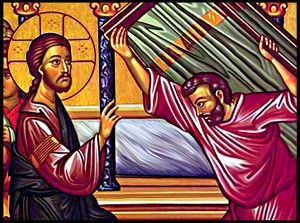 Susan Cain argues in her book, Quiet: The Power of Introverts in a World that Won’t Stop Talking, that America has shifted from a culture of character to a culture of personality–from valuing moral quality to valuing relational effect. She writes,
Susan Cain argues in her book, Quiet: The Power of Introverts in a World that Won’t Stop Talking, that America has shifted from a culture of character to a culture of personality–from valuing moral quality to valuing relational effect. She writes,
“America had shifted from what the influential cultural historian Warren Susman called a Culture of Character to a Culture of Personality—and opened up a Pandora’s Box of personal anxieties from which we would never quite recover. In the Culture of Character, the ideal self was serious, disciplined, and honorable. What counted was not so much the impression one made in public as how one behaved in private.
The word personality didn’t exist in English until the eighteenth century, and the idea of “having a good personality” was not widespread until the twentieth. But when they embraced the Culture of Personality, Americans started to focus on how others perceived them. They became captivated by people who were bold and entertaining. “The social role demanded of all in the new Culture of Personality was that of a performer,” Susman famously wrote. “Every American was to become a performing self.”
As we study Proverbs, we see that good character is not only right, it’s wise and consequential.
Portrait of Bad Character
A worthless person, a wicked man,
goes about with crooked speech,
winks with his eyes, signals with his feet, points with his finger,
with perverted heart devises evil,
continually sowing discord… (Proverbs 6:12-14)
1. He goes about with crooked speech.
The first time I bought lumber, I just grabbed boards from the top of the stack. I later realized that it’s essential to make sure the lumber you select is not crooked, warped, curved, and filled with jagged knots. The same goes for our words. Twisted words are not only wrong, they’re foolish. Building our lives on crooked speech is like building our homes with crooked boards. With each hurtful sarcastic remark and each deceitful half-truth, we build a crooked structure that will eventually collapse on our heads.
2. He winks and signals.
This goes for non-verbal crookedness too. Even if you don’t say anything wrong, winking at your buddies, nudging them with your elbow, or crossing your fingers behind your back is still crooked.
3. He devises evil.
His trouble-making is natural and continual. He operates “with perverted heart.” Like a broadcast spreader, he continually sows discord. These are the usual suspects when there’s strife; the people you unfollow on Facebook because you can’t stand the trouble they stir with their posts. When their name appears on your cell phone, your heart rate increases because they’re always spreading discord.
These are signs of bad character, and character has consequences.
Consequences for Bad Character
…therefore calamity will come upon him suddenly;
in a moment he will be broken beyond healing. (Proverbs 6:12-15)
Consider the consequences one with bad character can count on:
- Calamity: disaster, destruction, and distress; literally, bending down under heavy weight
- Suddenly; in a moment: in an instance, in the blink of an eye, shockingly abrupt
- Broken: shattered into pieces, crushed, violently burst
- Beyond healing: beyond remedy, recovery, or cure
This is a description of sudden, irreversible disaster. You can’t see it coming and you can’t undo it. You can’t dodge it or delete it.
Character, Consequences, and Jesus
We’ve seen this principle prove true in the lives of public figures, disgraced Christian leaders, people we knew in high school, our loved ones, and ourselves. Ultimately, we’re all people of compromised character, and we all experience consequences. This is why we need Jesus.
1 Peter 2:24-25 says,
He himself bore our sins in his body on the tree, that we might die to sin and live to righteousness. By his wounds you have been healed. For you were straying like sheep, but have now returned to the Shepherd of your souls.
We’ve each gone astray into crooked words and ways, triggering consequences both in this lifetime, and in the next. The good new is Jesus bore our grief, sorrow, and chastisement. By his wounds we are healed.
Thank God we can turn to Jesus for forgiveness and transformation. By accepting his death on our behalf we can die to your old ways and awaken to new ways of righteousness. We can turn to Jesus for healing in our calamity and brokenness. We can return to the Shepherd of our souls and begin to live the anti-Proverbs 6:12-14.
A worthy person, a righteous man,
goes about with upright communication,
with new heart devises good,
continually sowing peace.
Discussion Starters
- Read Proverbs 6:12-15 together. What stands out to you? What questions does it raise?
- How might some of these bad behaviors slip into church life? How can we guard against this?
- How does this passage relate to Jesus, the gospel, and the broader message of the Bible? (Some other passages to consider: Isaiah 53, 1 Peter 2:18-25)




